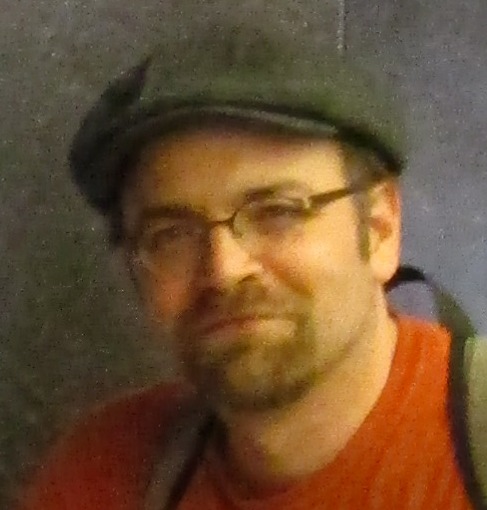A question that no one has asked me, but that I wish they would, is this: why, in today’s world, would I choose to write a novel? Imaginary work demands so much of that scarcest of resources, attention, and comes with little hope of bolstering the retirement income! Why not engage the intellect directly? I could just write essays or find audiences to harangue about the things that roll in my head, instead of burying everything in the action of strange, unfortunate characters. Fair questions. I can only answer that I tried that path, tell the story of its failure, and then move from that experience into my decision to pursue fiction. Through the right lenses, I think the connection from one step to the other will be apparent.
When a Good Idea Made No Impression
It begins in 2010, when I was doing my master’s degree at Nanjing University. While there I studied international law with Steven Hill, a visiting professor who later went on to serve as the chief legal adviser at NATO. He told us that the concept of “rule of law,” though widely understood in an intuitive sense, had never been properly defined. This was a surprising revelation to me, but I decided that I—second year graduate student that I was—would take the task on and succeed where a legion of better trained and supported scholars before me had failed. My first hack at the knot became the term paper for his class, with lamentable results. But I was sheepishly undeterred and focused my mind upon the problem, resolving to tackle it after graduation.
This, in fact, I managed to do: after a year and half of thinking and reading, I hit upon the idea. I had it! And then, after a further year of additional reading, writing, revising, etc., I had a finished product, which I submitted to the Small Wars Journal and actually managed to get published in December 2013. It was titled “The Rule of Law: A Definition in Socio-Political Terms.” I don’t recall my actual emotions at the time, but I do remember thinking that I had finally done something truly important. The rule of law: defined. Max Massa: the guy who did it. I thought that I had achieved the equivalent in legal theory of splitting the very first atom. In a foolish memory, I recall walking past the Capitol building on my way home from a social event the night my piece was published and imagining myself recognized by Congress for my achievements. It was vain, callow fantasy, but very real, and it shows how high my hopes had run.
I remember thinking that I had finally done something truly important. I thought that I had achieved the equivalent in legal theory of splitting the very first atom.
As far as I can tell, it remains uncited. I maintain that its main thesis is correct, that it is the explicit answer to a central problem in our legal and political theory. This fact, however, is unimportant, since I cannot make anyone read it and I have no community of discourse with which to share it. The fair issue of my overexcitable mind was brought forth into a swamp of disinterest and utterly failed to flourish there, like an acorn on an ironing board.

The Futility of Isolated Creation
And it is a sad fact that overexcitability—whether intellectual (as in this case) or in any other domain—calls out for company. If it were not so, people with powerful psychomotor needs would not form sports teams; they would just skip rope for endless hours at home instead, which would be a shorter path to satisfaction. I, in my turn, would have been happy to write my rule of law piece in invisible ink, or to thrust the pages into a furnace the moment they were written, as long as I knew this would be a scratch to my lonely, personal itches.
This is not the case, but it helps explain why we desire impact and recognition: accolades imply a crowd. And why was there no crowd? My obscurity as a first-time author on the topic certainly played a role; but there is also the other sad fact that the world is doing well enough without a definition of the rule of law, and—further—that we are becoming comfortable disregarding almost all the manifold gifts that the softer arts and sciences offer us. The reasons for the decline in the public intellectual sphere are manifold and I will not try to treat them here, but it is worth pointing out there is no living equivalent to Hannah Arendt in our world today. There is no society of minds like the New School or the Bloomsbury Circle; that is passed. So there’s not much of a crowd left to form, for that kind of thing. In a way, it would be best to just stop and forget.
But just as the overexcitable will seek company with one another, it is also true—and as sad, for some—that the drive towards self expression cannot be denied. Without an outlet, one simply becomes as the youthful Hannah Arendt herself described:
Die Stunden verrinnen,
Die Tage vergehen,
Es bleibt ein Gewinnen
Das blosse Bestehen.
The hours run down
The days pass on.
One achievement remains:
Mere being alive.
And that is not good. And yet, this happens; it happened to me. Without a thing on which to work, I was harrowed by terrible sensations late at night: I felt very mortal, as I lay in my bed. So I fell back onto reading, in the hope that something better or different would happen, a second time around. I read languages, in a wandering way—Greek and Latin and Chinese. But it is stupid and lonely, to be a bookworm on one’s own. And I knew, at some point, I would have another idea that mattered to me as much as the rule of law once had. I wanted to be ready and to have a chance at greater meaning and greater fulfillment when that happened.
Just as the overexcitable will seek company with one another, it is also true that the drive towards self expression cannot be denied.

When I finally had My Next Idea, I proceeded at the start much as I had with my effort on the rule of law: I read relevant authors and took notes. For this concept, the most pertinent writers were Nietzsche, Euripides, Callimachus, and Walter Friedrich Otto, though there were others too. But this time, I realized, I had to approach the problem of communicating differently. If people do not care about ideas tossed out into small academic journals, could there be some other vehicle to engage around ideas?
A Breakthrough: Intellect, in the Trappings of Imagination
One observation guided me here: People seem to be better at managing images than concepts. By this I mean, they will struggle to retain and apply a defined abstraction like the Rule of Law when it’s spelled out for them, but they will immediately, naturally grasp at something like the Yellow Brick Road or the Big Rock Candy Mountain. So I set out to express my idea not with words, but with verbal images. This is the way in which I wound up a novelist. Though people may associate novel writing with an overexcitability of the imagination, House of Apollo was written as an exercise of the intellect first and foremost. In a way, one could try to cheekily claim that it’s almost post-literate: by the action of characters and external events, I have tried to convey the impression of something that I might have simply written out in academic language. Specifically, I have told the story of a man who works in the graphic design shop of a strange, strange insurance company called Longshot, putting out advertising for policies that no one will ever cash in on.
Though people may associate novel writing with an overexcitability of the imagination, House of Apollo was written as an exercise of the intellect first and foremost.
Obviously, it’s not as if I was entirely without recourse to my imagination while writing this piece. For word painting, finding le mot juste, activating the tingle of reader interest and anticipation, I could not rely on the abstract mind alone. A novelist does need to be able to hold his hand before himself and feel in it the soft, living touch of a plant’s petals against his fingers, or the run of coarse fabric across bare skin. This enables the craft of creative writing. But I stress that, in my work, it is auxiliary: the house is intellect, merely furnished with imagination. This made writing House of Apollo an important—even revitalizing—experience for me as an isolated intellectual.
I share this reflection in the hope that my path to writing fiction will be useful to other people who are like me: intellectually overexcitable and outside the academic institution. It is a low tide for thinking right now, but that does not need mean we must suffer weakly, burying our minds in the dry soil of microplastics, advertising, and data. Perhaps, through the path of storytelling, I and others like me may find community.
Maxwell Olin Massa’s debut novel, House of Apollo, is available for pre-order from Whisk(e)y Tit Books.




